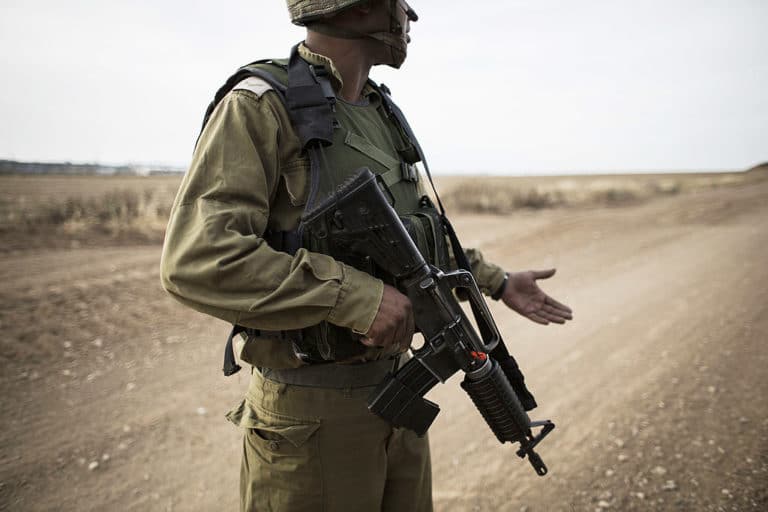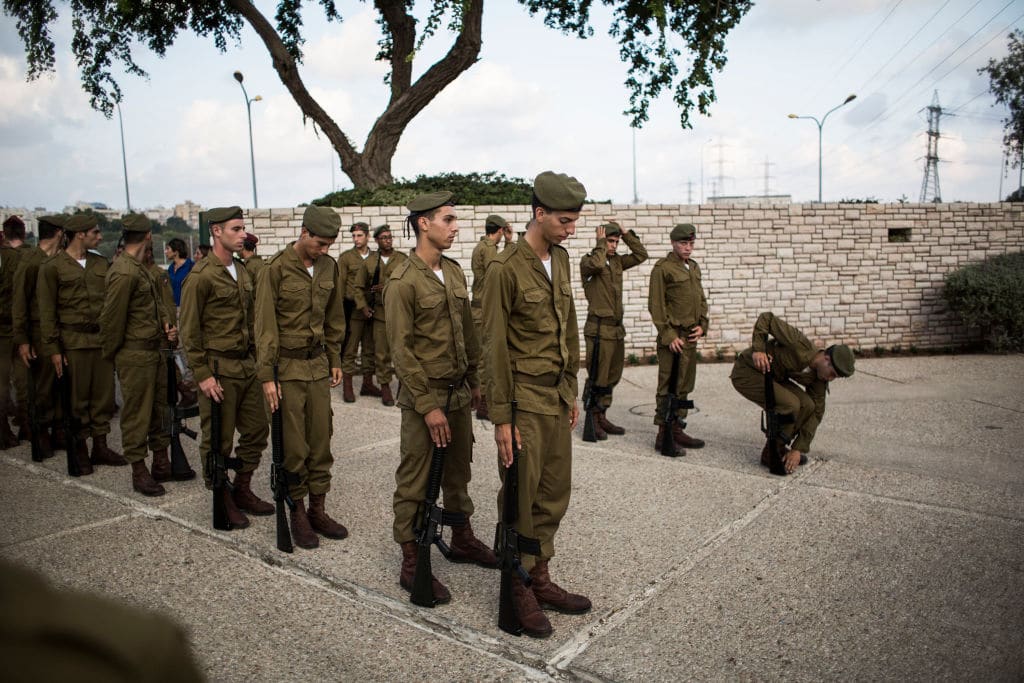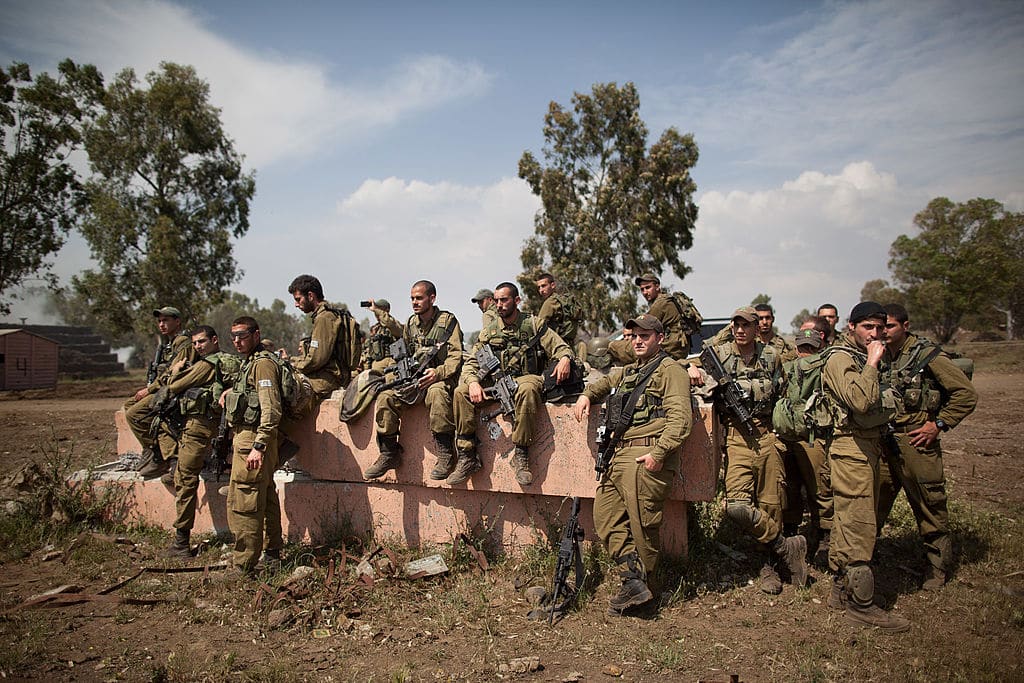
Listen to this article:
Israel has fought six wars with neighboring Arab countries, confronted two Palestinian intifadas, and endured numerous terrorist attacks since its establishment in 1948. In this reality, to defend the Jewish state against these prolonged threats, the majority of Israelis serve in the army. Out of necessity, Israel was the first country in modern history to make military service mandatory for both men and women. Men serve for a minimum of 30 months, while women serve for a minimum of 24 months (for non-combat roles) or 30 months (for combat roles).
Israel is the strong and powerful country that it is today because of the extraordinary service and sacrifice made by its citizens throughout history. However, this comes with an enormous price. This past Yom HaZikaron (Israel’s memorial day), Israel remembered 23,928 fallen soldiers and victims of terrorist attacks. Additionally, more than 36,000 Israelis have been physically wounded during their military service.
But there is another type of wound that many former IDF soldiers experience that isn’t as well understood as physical injuries, and hasn’t received the same level of attention in the press. That is the “invisible wound” of Post Traumatic Stress Disorder, or PTSD, which is a mental injury that can occur in people who have experienced or witnessed a traumatic event. Traumatic events that can trigger PTSD symptoms include war and combat (for example the latest conflict between Israel and Hamas), terrorist attacks, childhood abuse and neglect, sexual violence, and natural disasters.
The experiences of former IDF soldiers with PTSD, and the question of whether the Israeli government is properly caring for these veterans, have received national attention in recent weeks. Last month, Itzik Saidyan, a 26-year-old veteran soldier who served in one of the fiercest battles in the 2014 Gaza War, set himself on fire outside the offices of the Defense Ministry’s Rehabilitation Department in Petah Tikvah. When applying for government assistance following his service, Saidyan was recognized as being 25% disabled due to PTSD. Israeli news outlets reported that the Defense Ministry denied Saidyan’s request for 50% recognition, saying that a portion of his condition was due to traumatic events in his childhood, not his military service.
Saidyan’s act of protest led to calls by politicians and activists from across the political spectrum to reform Israel’s system of caring for veterans with PTSD. Wounded IDF veterans continued to demonstrate outside the Knesset and the Rehabilitation Department. The protests culminated in a government agreement reached last week to reform care for veterans with PTSD.
The plan would increase the number of staff working for the Rehabilitation Department and improve and streamline the process of recognizing injuries caused by military service and funding their treatment, especially for PTSD. Defense Minister Benny Gantz, who reviewed Israel’s rehabilitation services following Itzik’s self-immolation, said: “We have an obligation to remember the fallen, and an obligation to the living as well, including the tens of thousands of casualties who bear the scars of war on their bodies and spirits, both visibly and hidden.”
To cover this important topic, we reached out to two psychologists who are at the forefront of efforts to provide effective treatments to those with PTSD. We also spoke with two former IDF combat soldiers who shared their experiences serving as paratroopers in the 2014 Gaza War and how this impacted them after the war. One of the soldiers we interviewed asked to be kept anonymous, and we have called him “Ari” in this piece. We are particularly grateful to Max Bernstein, a business development associate at a tech company in Tel Aviv, and Ari, the founder and CEO of a startup based in Tel Aviv, for sharing their stories with us. We hope that you will be as inspired by their stories as we are and that this Weekly will help increase understanding about PTSD and how we can all help.

Max Bernstein: “Don’t just assume that everyone is ok”
Max Bernstein moved to Israel from California in 2013. He was drafted to the 890th Paratroopers Brigade in the same unit that American-Israeli soldier Michael Levin served in 10 years before. Bernstein trained as an elite sharpshooter and served on almost every border of Israel, including in the West Bank.
Bernstein served in Operation Protective Edge in 2014. “I came out of that physically unscathed, but little did I know that I had invisible damage.” Bernstein’s unit was fresh out of training and some of the youngest soldiers to go into Gaza. Their job was to find terror tunnels that Hamas was digging at the time in order to get terrorists into Israel. “It was utterly surreal the night we walked in [to Gaza] — the amount of gunfire, missiles, explosions.”
As an elite sharpshooter, Bernstein was sent on missions during the day and night and got only one hour of sleep per night. “I was too stressed, too scared, constantly surrounded by danger,” Bernstein explained. He had near-death encounters: “There were times I was shot at, times I almost got blown up.” He saw a friend get injured and almost die.
After spending three weeks in the war zone, Bernstein and his unit were finally relieved and returned to Israel. “We were all just happy to be alive.” That day, the IDF asked for volunteers to carry out another mission in Gaza; Bernstein volunteered and returned to Israel four days later. As a lone soldier, Bernstein had an opportunity to fly back to California. “I thought to myself, no better vacation than California, but in retrospect, it was the worst thing I could have done. The juxtaposition between crazy Gaza and sunny California was unreal… Now looking back, all I wish I had done was talk to an army psychologist and other soldiers.”
Bernstein returned to Israel a month later. His unit was stationed somewhere else. “It was like [the Gaza war] had never happened. There was no conversation. It felt incomplete without that,” but Bernstein went on with his life in the army. Toward the end of his service, his unit rotated to the Gaza border, near where they had been during the war. Bernstein started to experience strange symptoms: “I wasn’t eating, couldn’t sleep and I was jumpy and paranoid. I spoke with army commanders, and it started to become clear to me that I hadn’t digested my experiences in Gaza, my brain couldn’t comprehend them. I was starting to show symptoms of PTSD without knowing what it was.”
After completing his army service, Bernstein met his wife and got married. The PTSD symptoms returned, and he began therapy. “For me, it was a mourning process. I was mourning a piece of my personality, a piece of my soul that died. I had to go through a period of mourning, grief and acceptance. I don’t regret my experiences and am proud of my experiences, but I am a different person now.” He said his wife stuck with him the entire time. “If you’re the significant other, the greatest thing that you can do is just be patient and supportive. It is not an easy or linear process.”
Bernstein said he would like to see the army address this immediately following traumatic events. “If they had just forced all of us to sit in a circle two weeks after the war, and just talk about what happened, I really think it would have made a difference. The longer you leave it, the worse it is going to get. Once I started dealing with it, and got help, I got better.”
On a broader level, Bernstein said he wanted more Israelis to understand that some injuries are invisible. PTSD and seeking help for it is “a really big stigma in Israel. We have an expression, tihiye gever, ‘be a man.’ There’s an attitude of, ‘Get along with it, we all do the army.’” Bernstein added that he wanted people to “not make assumptions” when someone doesn’t have a visible injury. “Don’t just assume that everyone is okay. Never assume that someone has PTSD or not… Give people the opportunity to seek help if they need it.”

Ari: “I just want people to not hide it”
Ari served as an officer in the IDF’s 101st Paratrooper Brigade training base and is currently an officer in reserve. At 21 years old, Ari trained a group of about 40 recruits to become combat soldiers and paratroopers. In 2014, Ari led his soldiers into Gaza to carry out Operation Protective Edge.
Ari said that although he was not physically hurt in the war, he was injured emotionally. During the operation, Ari lost a commander and a soldier in his brigade. “I saw everything,” he said. Ari recalled being in shock when the commander died and then speaking with his soldiers to tell them the news. A new commander arrived shortly afterward to replace the commander who died: he slapped Ari on the face and said, “Wake up! Everything is going to be fine, we have to move forward.” “The first time I was probably in shock was then,” Ari said.
Ari said that a year later, he “started to be really sensitive to everything around me. I was anxious… Some noises were really hard for me to accept. Fireworks, a door slamming, or someone behind me.” Ari said it took him two or three years before he understood that he was experiencing PTSD. But once he realized this, Ari did not tell anyone or get help. “I was a little bit ashamed… I kept it to myself. That was my biggest mistake because it got much worse.”
His symptoms reached a point that Ari started to open up with his family and close friends. He said he was surprised that “there was no judgment” and “a lot of understanding.” He said going back to the army for four months as a captain in reserves helped a lot. Today, Ari’s symptoms have significantly improved. When we asked Ari about whether he had sought recognition from the Israeli government for PTSD, he responded that he “was too afraid to open that door. I heard from friends of mine that it was a living nightmare to go through that process.”
Some of the criticism heard over the years is that IDF veterans seeking assistance face bureaucratic challenges and an attitude of suspicion by the committees determining their disability. According to The Jerusalem Post, “around half of all requests submitted by IDF veterans seeking recognition as being disabled were rejected between 2015 and 2019.”
What other change would Ari like to see on this issue? “I just want people to not hide it, not be ashamed, and get the help they need.” And, he added: “Peace in the Middle East. To have no need for soldiers and fighting.”
Understanding PTSD and how to help
Dr. Danny Brom is a clinical psychologist and the founding director of Metiv: The Israel Psychotrauma Center, which treats people suffering from PTSD. Brom runs a program called “Peace of Mind” or “Masa Shichrur” in Hebrew (“Release Journey”) for soldiers who have gone through traumatic events. “We invite whole combat teams after they are out of the army for a period of processing their experiences.” Brom said the program fills a gap of needed treatment for the veterans: “The army wires people for war, the whole wiring in the brain becomes different. But then no one unwires people.”
One of the positive outcomes of the program is that it has encouraged more veterans with PTSD to seek treatment. A 2018 study conducted by the IDF determined that only 2% of veterans who fought in the 2006 Second Lebanese War sought treatment for PTSD (while the estimated prevalence of PTSD was as high as 11%). Comparatively, 15% of the soldiers who participate in “Peace of Mind” ultimately seek treatment. Brom said that he hopes that “Peace of Mind” or a similar comprehensive treatment program will become standard for soldiers leaving the army. Because many veterans don’t seek treatment due to the stigma of PTSD, Brom said, the program is a way to be proactive and help them understand what they experienced .
When asked about how family and close friends of people with PTSD can best support their loved ones, Brom recommended being “supportive, curious, and wanting to hear what people went through.” For individuals who are experiencing severe symptoms, Brom said it’s important to support people in the direction of getting help. Family and friends can help the person to not feel ashamed, and shift their perspective from “Does this say something about me?” to “Let’s get you out of this.”
Dr. Neil Weissman, coordinator of the psychosocial recovery center at the Veterans Administration in Baltimore, provides evidence-based therapies for people with PTSD, including couples therapy. Weissman said that for the partners of people with PTSD, education about the symptoms and coping skills is key. “The more the partner understands about PTSD, the more they can understand that this is a symptom they can work to address with the trauma survivor, instead of taking it personally,” Weissman said. The partner can learn techniques, like relaxation and distraction exercises, that will be helpful for the trauma survivor. (Full disclosure: Dr. Weissman is the father of Dr. Noam Weissman).
Dr. Weissman underscored that it is important to view PTSD as “a psychological injury, not a mental illness.” PTSD should be understood as a natural reaction to a traumatic event and how many people would respond. “Just like you can have a physical injury, you can have a psychological injury,” Weissman said. “If people reframe it that way, then the soldier doesn’t need to feel shame. That’s the approach we take: It’s an injury like any other injury, and we’re here to help you address it.”
The Bottom Line
For Israel, one of the consequences of fighting many wars and an ongoing threat of terrorism is the scars that are not seen. Those scars may be invisible but they are very real. It is up to us to create a more empathic society that understands PTSD and the sacrifices of those who have been through battle.
PTSD is a global issue that every country must address, and Israel is no exception to that. To paraphrase from our recent video essay, “Why I Am a Zionist,” Zionism is about the never-ending work of improving Israeli society and fulfilling its unmet promises. That important work includes honoring IDF veteran soldiers, ensuring people with PTSD get the care they need, and destigmatizing PTSD.
Originally Published Jun 1, 2021 12:19AM EDT
